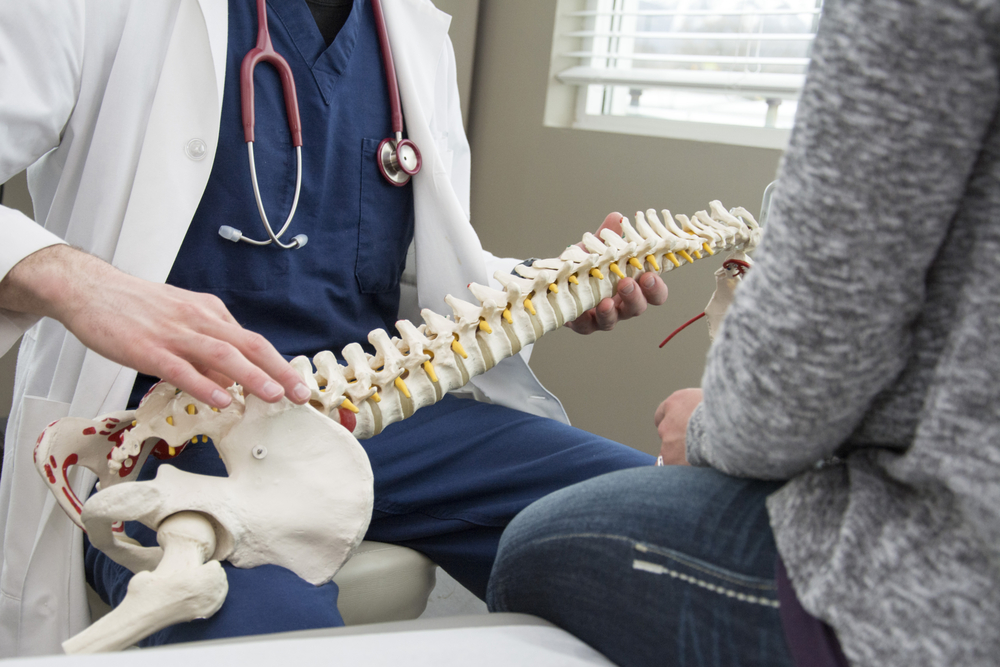Schedule An Appointment With Us
Are Your Symptoms Affecting Your Quality Of Life?
Consult our MOH-accredited orthopaedic surgeon for an accurate diagnosis & personalised treatment plan.
Dr Poh Seng Yew, with 18 years of experience in orthopaedic surgery, specialises in treating various orthopaedic and musculoskeletal conditions including spine complications. His approach integrates current surgical techniques, including arthroscopic, minimally invasive, and open surgical methods, to offer a range of treatment options tailored to each specific case.
If you are experiencing symptoms related to spine complications, consider a consultation with our MOH-accredited spine specialist for a thorough diagnosis and a personalised treatment approach.
MBBS
MRCSEd
MMED (Ortho)
FRCSEd

Spine conditions can vary widely in terms of their nature and impact on individuals. These conditions often involve discomfort or pain and may affect mobility and quality of life.
The development of spine conditions can be attributed to various factors:
Recognising the symptoms and signs of spine conditions can aid early detection and treatment.
The diagnostic process for spine conditions includes:
Medical History and Symptom Assessment |
This initial stage involves a thorough discussion of the patient’s symptoms, including its nature, duration, and severity. Information about prior injuries, medical conditions, and certain lifestyle factors may also be collected. |
Physical Examination |
A detailed physical examination is performed to assess the spine’s range of motion, muscle strength, and nerve function. This helps to identify specific areas of tenderness, pain, or weakness and to observe any postural abnormalities. |
Imaging Studies |
X-rays are often used to assess bone structures and alignment, while MRIs provide detailed images of soft tissues, including discs and nerves. CT scans may also be used to obtain cross-sectional images of the spine, offering insights into the condition of the spinal bones and surrounding tissues. |
Nerve Function Tests |
In cases where nerve involvement is suspected, EMG (Electromyography) and nerve conduction studies may be conducted. These tests measure the electrical activity of muscles and the speed of nerve signal transmission, aiding in the detection of nerve damage or compression. |
Schedule An Appointment With Us
Consult our MOH-accredited orthopaedic surgeon for an accurate diagnosis & personalised treatment plan.
Non-surgical treatments play a role in managing spine conditions, focusing on pain relief, improving function, and preventing further complications.
In the early stages of spine pain, the spine specialist may suggest modifying or avoiding any activities that exacerbate symptoms. Ergonomic changes at work and home can also help reduce strain on the spine.
In certain cases, braces or collars may be used to support the spine and limit movement, allowing the affected area to heal.
Customised exercise programs are developed to strengthen back and neck muscles, improve flexibility, and correct posture. Physical therapy also includes techniques to alleviate pain and enhance mobility.
Non-steroidal anti-inflammatory drugs (NSAIDs) and muscle relaxants are often prescribed for pain relief and reducing inflammation. In some cases, neuropathic pain medications are used for nerve-related pain.
In certain cases where non-surgical treatments are insufficient, surgical options may be considered. The choice of surgical procedure depends on the specific spine condition, its severity, the patient’s overall health, and the expected outcome of the surgery.
Several measures can reduce the risk of developing or exacerbating spine conditions.

MBBS
MRCSEd
MMED (Ortho)
FRCSEd
With over 20 years of experience, Dr Poh Seng Yew is an orthopaedic surgeon specialising in hip, knee, shoulder and elbow surgery, sports medicine, and trauma surgery.




Weekdays: 9.00am – 5.00pm
Saturdays: 9.00am – 1.00pm
Sundays and Public Holidays: Closed
Please leave us a message, and we will be in touch with you shortly.
While some mild spine pain may resolve with self-care and rest, persistent or worsening pain warrants a medical intervention. Reach out to our spine specialist for prompt attention and personalised care.
Ignoring spine pain can lead to worsening symptoms and potentially chronic conditions. Early evaluation by a spine specialist can help prevent such complications, through effective treatment options and management strategies.
Surgery is considered when conservative treatments have not provided relief, or if the condition is severe and affects quality of life. A discussion with the spine specialist can determine if surgery is the appropriate course of action for you.
Avoid activities that exacerbate the pain, such as heavy lifting, prolonged sitting, or poor posture. A spine specialist can offer tailored guidance on activities to avoid and suggest appropriate ergonomic adjustments.
Recovery time varies depending on the condition and treatment. Some conditions require longer periods of physical therapy and lifestyle adjustments, while others may resolve more quickly with proper care.